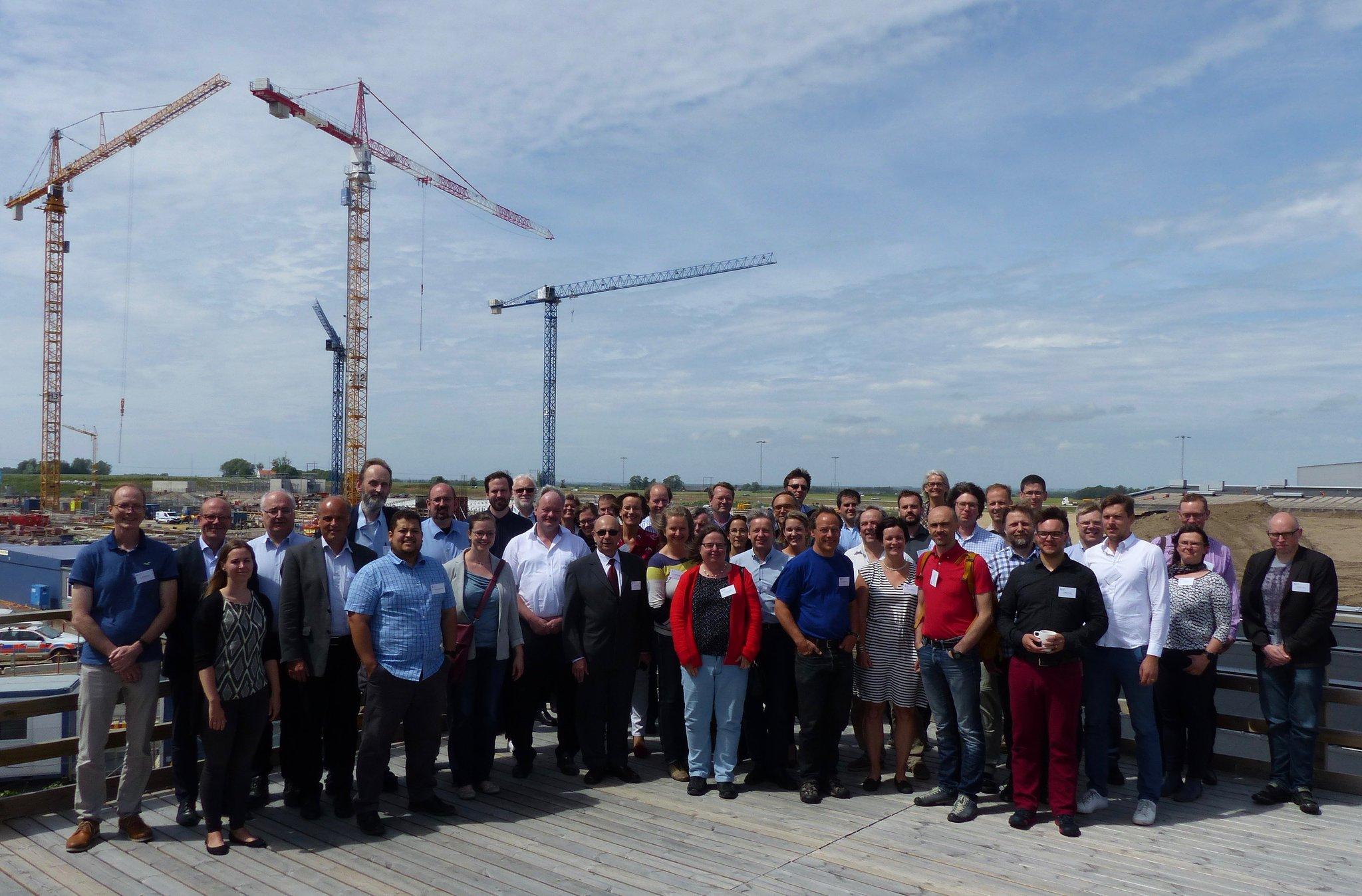RÅC workshop held at ESS construction site

On 28 June, more than 50 participants gathered at the ESS construction site, for a workshop on the Röntgen-Ångström Cluster (RÅC), a Swedish-German research collaboration. The RÅC aims to strengthen research at synchrotron and neutron radiation sources, especially within the fields of materials science and structural biology. The workshop in Lund was the second in a series of two scientific workshops that are strongly cross-connected to discuss the future perspectives of the RÅC beyond 2020. The first workshop, focused on photon science, was held on 09 June 2017 in Hamburg. The complementary workshops aim to bring together key stakeholders from various scientific fields and associated research communities to discuss and identify the most promising scientific directions and arrive at a long-term strategic view how the RAC collaborative framework should be further pushed and developed towards new levels.
The workshop programme hosted by Andreas Schreyer, Director for Science at ESS and Ulf Karlsson, Head of Swedish Delegation of RÅC at Linköping University, featured an introduction to the RÅC and highlighted new opportunities for collaboration which facilities such as ESS will provide. The opening talks were followed by presentations on the neutron landscape in Sweden and Germany and related capacity building activities such as the NordForsk Nordic Neutron Science Programme (NNSP), which is supported by BrightnESS.
The upcoming NNSP School, which will take place in September 2017, is a 10-day study trip to Tartu where PhD students are taken through the entire spectrum of working with neutron science. "We have 60 places for the school, which are available for PhD students within all areas a natural science", explains Dr. Kim Lefmann from the University of Copenhagen, one of the school's coordinators responsible for the course and e-learning, as he presents the school's programme to the participants. Prof. Martin Sahlberg from Uppsala University, who is a co-coordinator responsible for the network, notes that "the NNSP networks is a very inclusive project, with the aim of connecting new and experienced users, especially those who are post-PhD, but not yet in a permanent position."
Educational activities such as the NNSP school and the RACIRI summer school play an important role in training the next generation of neutron users. Future efforts will aim to link and synchronize these programmes with EU regional projects and other national initiatives.
The key conclusions which emerged from the panel discussion to drive future efforts within the RÅC framework included, making an effort to expand the network membership, in addition to achieving higher impacts through improved clustering of projects. A report will summarise the main outcomes of the two RÅC workshops.




 is funded by the European Union Framework Programme for Research and Innovation Horizon 2020, under grant agreement 676548.
is funded by the European Union Framework Programme for Research and Innovation Horizon 2020, under grant agreement 676548.